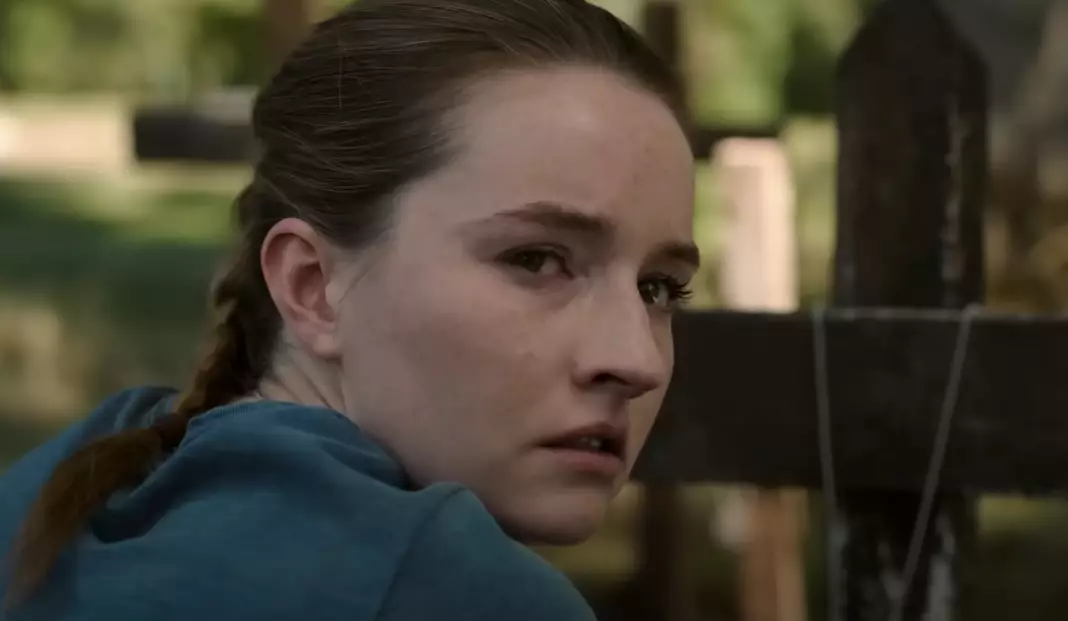Kaitlyn Dever’s foray into the critically acclaimed HBO series “The Last of Us” marks a significant turning point in her career. Taking on the challenging role of Abby is no small feat, particularly given the cult following and intricate narrative that surrounds both the game and the first season of the show. Dever acknowledges the pressure that accompanies such an iconic character, expressing a desire to do justice to Abigail and connect authentically with fans. The transition from lesser-known roles to this prominent position in an established franchise is daunting yet exhilarating for her.
Dever was candid in a recent interview, recognizing the complexities that come with stepping into a character that has sparked intense emotional responses among fans. Known for her roles in “Booksmart” and “Unbelievable,” she is no stranger to critical acclaim, yet the expectations tied to Abby are particularly unique. Dever’s approach appears grounded in authenticity; she emphasizes a commitment to portraying the character honestly and organically, which is commendable in an environment where actors can often feel pressured to adhere strictly to fan expectations.
Amidst the swirling rumors surrounding the production of Season 2, Dever took the opportunity to clarify misconceptions, particularly one regarding her safety. Gossip suggested that Dever required additional security due to Abby’s controversial reception in “The Last of Us Part II,” a rumor she firmly debunked. This statement highlights the often exaggerated narratives that can emerge online and the vital role social media plays in shaping public perception. By addressing these rumors directly, Dever not only alleviates concerns but also showcases her forthrightness and willingness to engage with the fanbase in a meaningful way.
Importantly, the controversy surrounding Abby’s character is reflective of the discourse that emerged following the release of the video game. Open discussions about character polarities can either enrich or hinder a narrative, which raises questions about how adaptations balance creative integrity and audience reception. Previous actress Laura Bailey faced severe backlash, including threats, a grim testament to the toxicity that can emerge from fandom fervor. Thus, Dever is undoubtedly aware that her role may elicit reactions—both positive and negative—allowing for an opportunity to redefine Abby for a new medium while navigating the residual tension from past portrayals.
One noteworthy discussion point surrounding Dever’s portrayal is her physical transformation—or lack thereof—compared to the video game character. While fans might associate Abby with a muscular physique, it has been confirmed that Dever did not undergo dramatic physical changes for the role. This decision has sparked conversations regarding what constitutes authenticity in adaptations. Showrunner Neil Druckmann suggested that casting Dever was based more on her talent than merely fitting a pre-established physical mold. This approach signals a move towards prioritizing performance over an exact visual match, a decisive stance for future adaptations.
This ideological pivot may resonate with audiences that appreciate depth of character over superficiality. It’s a bold move that shows creators are prioritizing narrative authenticity over strictly adhering to game lore. Showrunner Craig Mazin’s view that Season 2 may provoke “furor” among gaming fans speaks to a broader trend in serial adaptations—while remaining respectful to source material, there’s a clear intent to explore new narrative paths and character dimensions, which is crucial for maintaining current audiences and attracting new viewers.
As anticipation builds for the April release of Season 2, discussions about the future of “The Last of Us” franchise are already buzzing. Neil Druckmann’s hints about a possible “The Last of Us Part 3” only add to the mystique, providing fans with hope and excitement for further explorations in this hauntingly rich world. The narrative twists in both the series and the games leave ample room for speculation, but one thing is clear: Kaitlyn Dever’s arrival may well redefine Abby’s journey, and the ripple effects will continue to unfold in ways that challenge the very fabric of fan expectations.
Kaitlyn Dever’s entry into “The Last of Us” not only marks a new chapter in her career but revives discussions of authenticity, character engagement, and adaptation within fan culture. As the players of this narrative continue to evolve, audiences eagerly await to see how Abby’s complex story will resonate on screen, heralding a new era for a much-loved franchise.

